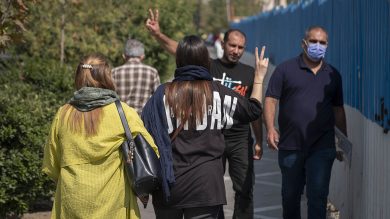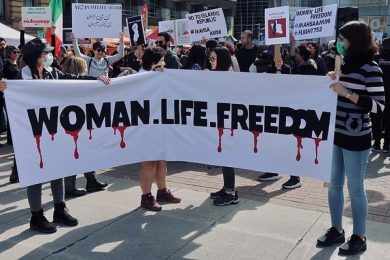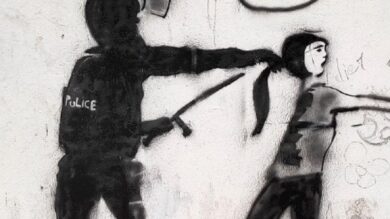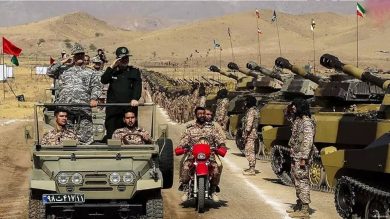The Islamic Revolutionary Guard Corps (IRGC) has become one of the most powerful and controversial institutions in Iran, exerting control not only over the country’s military and political systems but also its economy. Originally created in 1979 to protect the Islamic Revolution, the IRGC has evolved into a sprawling conglomerate, dominating key industries and funding its domestic and regional activities. Its economic dominance has not only stifled competition and innovation but also contributed to widespread corruption, economic inequality, and the oppression of Iranian citizens.
This article explores how the IRGC has established a stranglehold on Iran’s wealth, the methods it uses to maintain control, and the impact this economic power has on the Iranian people and global stability.
The Rise of the IRGC’s Economic Empire
1. Post-Revolution Expansion
• Foundation and Role: After the 1979 Islamic Revolution, the IRGC was established to protect the regime and its values. Over time, it extended its influence into the economy as the government rewarded its loyalty with lucrative contracts and control over key industries.
• Iran-Iraq War (1980–1988): The IRGC’s involvement in post-war reconstruction projects further expanded its economic reach. Many contracts for rebuilding infrastructure and industries were handed to IRGC-affiliated companies, cementing its role as an economic powerhouse.
2. Privatization and Takeover of Key Industries
• Privatization in Name Only: During the 2000s, Iran undertook a program of privatizing state-owned enterprises. However, much of this privatization resulted in the transfer of assets to entities controlled by the IRGC or its affiliates.
• Monopoly Power: The IRGC now controls vast portions of Iran’s energy, construction, telecommunications, and transportation sectors, allowing it to dominate the economy and suppress competition.
3. Khatam al-Anbiya: The IRGC’s Economic Arm
• Largest Construction Firm: Khatam al-Anbiya Construction Headquarters is the IRGC’s engineering arm and one of the largest contractors in Iran. It is involved in major infrastructure projects, including roads, bridges, dams, and pipelines.
• Energy Sector Control: Khatam al-Anbiya has secured massive contracts in the oil and gas sector, a critical source of revenue for the Iranian economy. Its involvement in energy projects strengthens the IRGC’s financial independence and influence.
Methods of Economic Domination
1. Exploiting Government Contracts
The IRGC uses its political influence to secure no-bid contracts for major projects, sidelining private firms and ensuring its continued economic dominance.
• Preferential Treatment: The regime often grants contracts directly to IRGC-affiliated companies, bypassing competitive bidding processes.
• Corruption: Widespread corruption enables the IRGC to benefit from inflated budgets and inefficient project execution, diverting public funds for its own enrichment.
2. Black Market Operations
• Sanctions Evasion: The IRGC operates extensive smuggling networks to evade international sanctions, generating significant revenue through illicit trade in oil, weapons, and consumer goods.
• Underground Economy: Its control of the black market further undermines legitimate businesses and exacerbates economic instability.
3. Financial Networks and Front Companies
• Global Reach: The IRGC operates an international network of front companies to launder money, finance its activities, and circumvent economic restrictions.
• Integration with Banks: IRGC-linked entities have ties to Iran’s banking system, enabling them to finance their operations and influence monetary policy.
Impact on Iranian Society
The IRGC’s economic stranglehold has had devastating consequences for ordinary Iranians, exacerbating inequality, stifling economic growth, and increasing public frustration.
1. Economic Inequality
• Wealth Concentration: The IRGC’s control of lucrative industries has concentrated wealth in the hands of its affiliates, leaving little for ordinary citizens or independent businesses.
• Rising Poverty: While the IRGC thrives, many Iranians face rising unemployment, inflation, and declining living standards.
2. Stifled Private Sector
• Lack of Competition: The IRGC’s dominance has crowded out private firms, discouraging entrepreneurship and foreign investment.
• Brain Drain: Many skilled Iranians leave the country in search of better opportunities, weakening the domestic economy.
3. Corruption and Mismanagement
• Widespread Corruption: The IRGC’s economic activities are rife with corruption, diverting resources away from public services and infrastructure.
• Economic Mismanagement: Projects managed by the IRGC often suffer from inefficiency and waste, further straining the economy.
4. Funding Oppression
• Repression of Protests: Revenue generated by the IRGC funds the regime’s security apparatus, which is used to suppress dissent and silence opposition.
• Control Over Media: The IRGC’s economic power extends to media and telecommunications, enabling it to control narratives and stifle free expression.
Regional and Global Implications
The IRGC’s economic activities have far-reaching consequences beyond Iran’s borders, impacting regional stability and global security.
1. Funding Proxy Wars
The IRGC uses its economic resources to finance and arm proxy groups across the Middle East, including Hezbollah in Lebanon, the Houthis in Yemen, and various militias in Iraq and Syria. This destabilizes the region and exacerbates conflicts.
2. Threat to Global Trade
The IRGC’s control of key infrastructure, such as ports and transportation networks, poses a risk to global trade, particularly in the strategically vital Strait of Hormuz.
3. Sanctions Evasion
The IRGC’s illicit financial networks undermine the effectiveness of international sanctions, complicating efforts to hold Iran accountable for its actions.
Global Responses to the IRGC’s Economic Power
The international community has taken various measures to counter the IRGC’s economic influence, though challenges remain.
1. Sanctions
• Targeted Sanctions: The U.S. and its allies have imposed sanctions on IRGC-affiliated individuals and entities, aiming to disrupt its financial networks.
• Economic Isolation: These sanctions have limited the IRGC’s ability to access international markets, but their effectiveness is undermined by black market operations.
2. Financial Monitoring
• Anti-Money Laundering Efforts: Governments and financial institutions work to identify and block IRGC-linked transactions, reducing its access to global financial systems.
• Increased Oversight: International bodies like the Financial Action Task Force (FATF) have called for stricter measures to combat the IRGC’s financial activities.
3. Diplomatic Pressure
• Coalition Building: Countries are coordinating efforts to pressure Iran to rein in the IRGC’s activities, though divisions remain over the best approach.
• Public Awareness: Raising awareness about the IRGC’s economic stranglehold helps build international consensus for action.
Conclusion
The IRGC’s economic dominance is a cornerstone of its power, enabling it to fund oppression at home, destabilize the Middle East, and resist international pressure. Its stranglehold on Iran’s wealth has devastating consequences for ordinary Iranians, who bear the brunt of economic mismanagement and inequality. Countering the IRGC’s influence requires sustained international efforts, including targeted sanctions, financial oversight, and support for Iranian civil society. By addressing the IRGC’s economic empire, the global community can help pave the way for a freer, more equitable Iran.
Join Our Newsletter!
Stay informed with the latest updates, news, and ways to take action in the fight for justice and global security. Sign up now to get updates delivered straight to your inbox!





